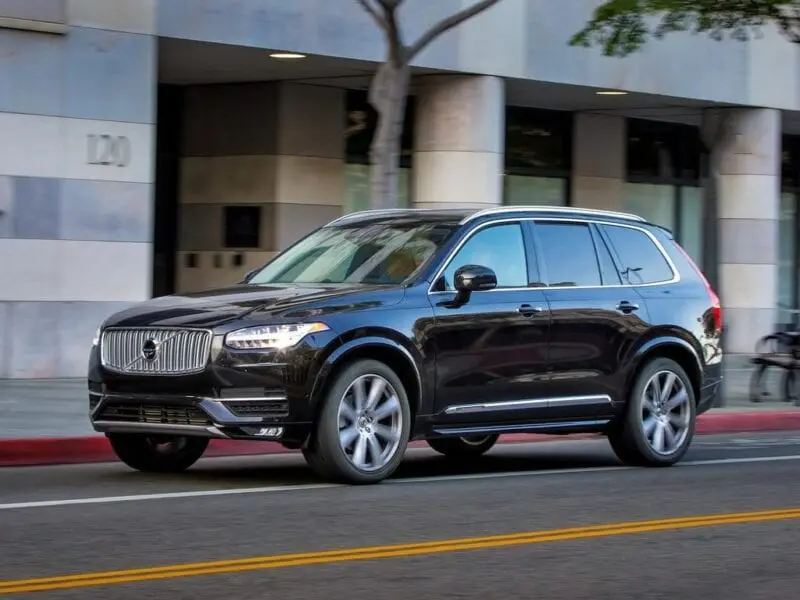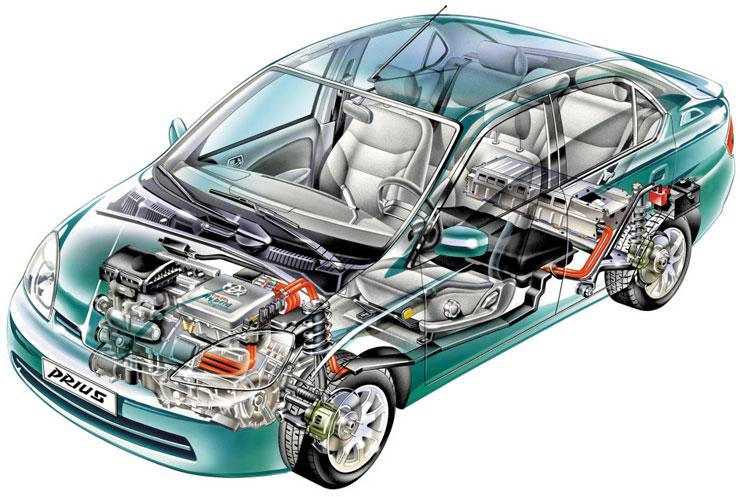
Battery life. Electric and hybrid vehicles
Content
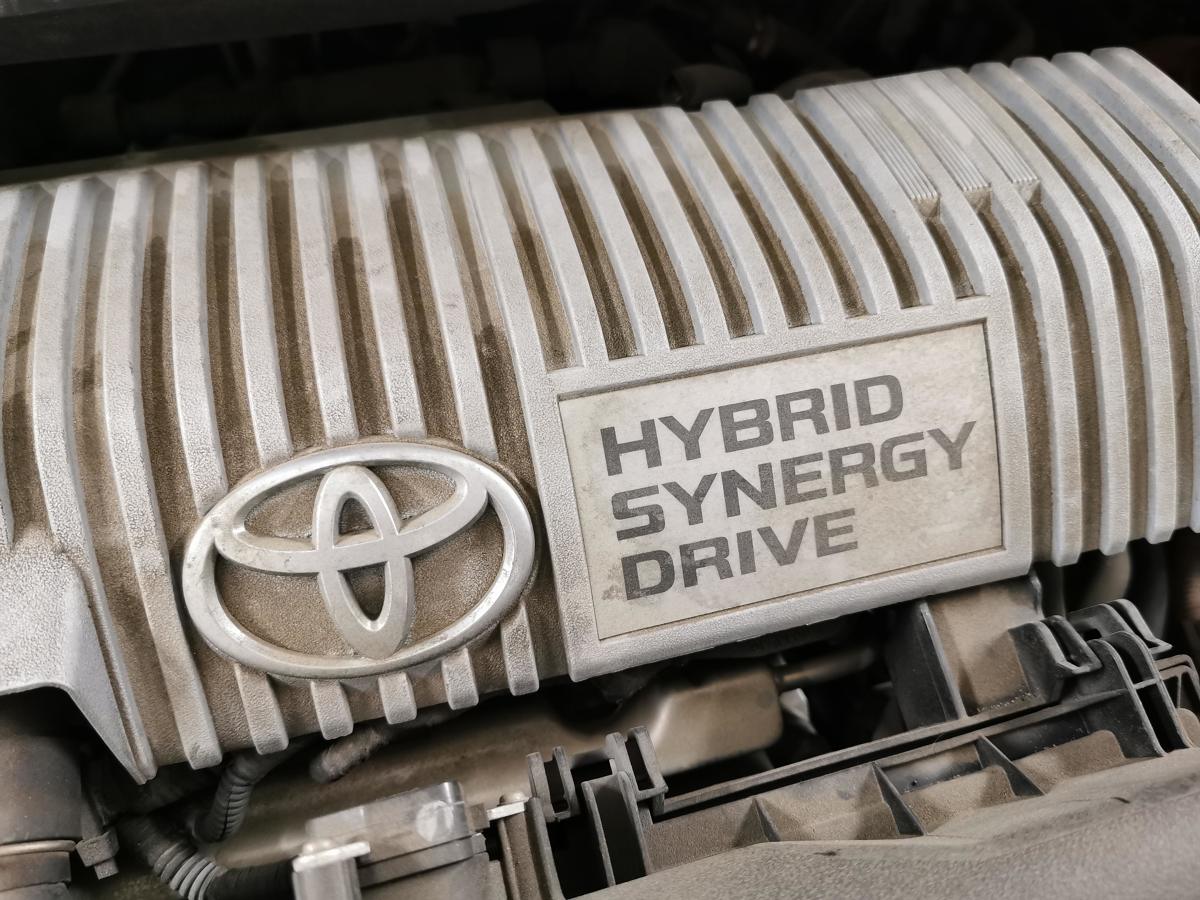 Vehicle electrification is no longer an uncertain future. This is real! Tesla, Nissan, the Toyota Prius hybrid and other electric vehicle manufacturers may have changed the face of the automotive market forever. The biggest players are in the game. Toyota's main competitor, claiming the top spot in global sales, Volkswagen officially began series production of the ID.4 on November 3rd. Angela Merkel appeared at the inauguration, showing how serious the German government is about the electrification of the automotive industry. The manufacturer himself describes the ID.3 as the pioneer of a new chapter in the history of the brand, right after the Beetle and Golf.
Vehicle electrification is no longer an uncertain future. This is real! Tesla, Nissan, the Toyota Prius hybrid and other electric vehicle manufacturers may have changed the face of the automotive market forever. The biggest players are in the game. Toyota's main competitor, claiming the top spot in global sales, Volkswagen officially began series production of the ID.4 on November 3rd. Angela Merkel appeared at the inauguration, showing how serious the German government is about the electrification of the automotive industry. The manufacturer himself describes the ID.3 as the pioneer of a new chapter in the history of the brand, right after the Beetle and Golf.
Of course, drivers have many concerns about the electric revolution. One of the biggest concerns is battery life. Let's see what we know about it today. How do hybrid and electric vehicle batteries perform in everyday use? How does their power decrease over time depending on operating conditions? Dear reader, I invite you to read the article.
Battery life. Like this?
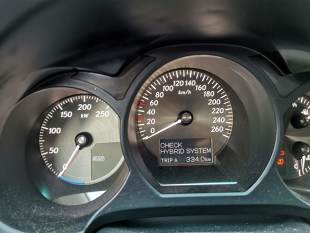 Hybrid and electric vehicles have been in the automotive industry for so long that manufacturers and independent companies can afford the first representative conclusions.
Hybrid and electric vehicles have been in the automotive industry for so long that manufacturers and independent companies can afford the first representative conclusions.
Toyota is a pioneer in automotive hybrid technology for high volume production. The Prius has been on the market since 2000, so the amount of data collected and consumer opinion is a really solid basis to think about.
It turns out that the life of the battery used in the Japanese manufacturer's hybrid is unexpectedly long. The case of the Viennese taxi driver Manfred Dvorak, who traveled more than 8 million kilometers in his second generation Toyota Prius in 1 years, is a well-known and well-documented case! The car is equipped with the original battery pack and continues to drive through the streets of Vienna in full working order.
Interestingly, Warsaw taxi drivers also have similar observations. In my interviews, drivers of transport companies popular in our market were delighted with Japanese hybrids. The first of these was driven by a Toyota Auris hybrid purchased from a dealership. A car equipped immediately after purchase with a HBO installation has traveled more than half a million kilometers without the slightest breakdown, and the driver does not see a noticeable decrease in the efficiency of native batteries. According to his and his colleagues, the batteries of hybrid units should be in constant use, which, in his opinion, prolongs their service life. The second taxi driver, the owner of a Prius+ brought from abroad, is also delighted with the hybrid unit in operation. Car bought with mileage over 200. km, traveled 190 km on the streets of Warsaw, has an original battery and continues to drive. When I asked about their overall impressions of the cars' durability in service, they both compared their durability to legendary Mercedes barrels. However, not only the hybrid Toyota is the favorite of taxi drivers. One corporation operating on the streets of San Francisco had 000 hybrid Escape Fords run 15 miles on their original batteries before they were scrapped.
Battery life. According to experts
We know the opinion of taxi drivers, but what do professionals involved in their regeneration say about the durability of batteries in hybrids?
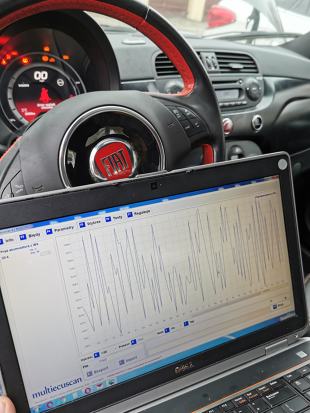 According to Warsaw-based JD Serwis, the older the system, the more durable the batteries. Many second-generation Prius models are still able to ride their original links (16 years old) and easily reach 400 kilometers or more. Newer ones have a slightly shorter service life and are estimated at 000-300 thousand. km in the case of the 400th generation Prius. As you can see, the battery life of hybrid vehicles is impressive. Manufacturers, like Toyota, left nothing to chance. The power distribution computer ensures that the battery operates within the optimal charge range, i.e. between 20% and 80%. In addition, the battery pack is equipped with a system that maintains constant temperature operating conditions. Experts also confirm the opinion of the aforementioned taxi drivers. Batteries do not like downtime. Longer, several months of car inactivity, especially when it is standing with a completely discharged battery, will shorten its service life.
According to Warsaw-based JD Serwis, the older the system, the more durable the batteries. Many second-generation Prius models are still able to ride their original links (16 years old) and easily reach 400 kilometers or more. Newer ones have a slightly shorter service life and are estimated at 000-300 thousand. km in the case of the 400th generation Prius. As you can see, the battery life of hybrid vehicles is impressive. Manufacturers, like Toyota, left nothing to chance. The power distribution computer ensures that the battery operates within the optimal charge range, i.e. between 20% and 80%. In addition, the battery pack is equipped with a system that maintains constant temperature operating conditions. Experts also confirm the opinion of the aforementioned taxi drivers. Batteries do not like downtime. Longer, several months of car inactivity, especially when it is standing with a completely discharged battery, will shorten its service life.
See also: Dirty license plate fee
Interestingly, JD Serwis refutes the notion that hybrid car batteries are not serviced by frequent driving at high constant speeds. According to the above opinion, in this case, the elements operate in a continuous discharge mode, which adversely affects their service life. Warsaw site specialists reassure that with this type of operation, the electric motor is disconnected from the movement of the car, so the only inconvenience will be the high fuel consumption of the gasoline unit.
And what do manufacturers of hybrid drives say about this topic? Toyota gives a 10-year warranty on batteries, and Hyundai gives 8 years or 200 km. As you can see, even automakers believe in the reliability and durability of cells. Remember, however, that, as in the case of purely internal combustion vehicles, a condition for maintaining the warranty on the battery is that the vehicle is regularly serviced by an authorized workshop.
Battery life. "Electricians"
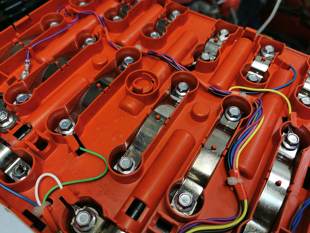 We know what it's like with hybrid cars. What is the battery life of electric vehicles? American Tesla, which has a number of purely electric models, and Nissan, whose Leaf model has been on the market for 10 years, have collected the most data on this topic. The Japanese manufacturer claims that only 0,01% of the units sold had a defective battery, with the rest still enjoying a trouble-free ride. Nissan even sought out consumers who bought some of the first cars to hit the market. It turned out that in most cars the batteries were in good condition, and their assortment was slightly different from the factory one. However, there have been reports in the press that mention a case in which a Spanish taxi driver used a Nissan Leaf as a taxi. In the described case, the battery capacity decreased by 50% after a run of 350 km. You may also have heard of similar cases from Australian users. Experts attribute this to the hot climate in which these cars were used. Nissan Leaf, as one of the few electric models available on the market, does not have active cooling / heating of battery cells, which in extreme operating conditions can adversely affect their overall durability and temporary decrease in efficiency (for example, in cold weather). .
We know what it's like with hybrid cars. What is the battery life of electric vehicles? American Tesla, which has a number of purely electric models, and Nissan, whose Leaf model has been on the market for 10 years, have collected the most data on this topic. The Japanese manufacturer claims that only 0,01% of the units sold had a defective battery, with the rest still enjoying a trouble-free ride. Nissan even sought out consumers who bought some of the first cars to hit the market. It turned out that in most cars the batteries were in good condition, and their assortment was slightly different from the factory one. However, there have been reports in the press that mention a case in which a Spanish taxi driver used a Nissan Leaf as a taxi. In the described case, the battery capacity decreased by 50% after a run of 350 km. You may also have heard of similar cases from Australian users. Experts attribute this to the hot climate in which these cars were used. Nissan Leaf, as one of the few electric models available on the market, does not have active cooling / heating of battery cells, which in extreme operating conditions can adversely affect their overall durability and temporary decrease in efficiency (for example, in cold weather). .
American Tesla uses liquid-cooled / heated batteries in every model it makes, which makes the batteries resistant to extreme weather conditions. According to Plug In America, which tested the Tesla S, cell capacity decline is at the level of 5% after the first 80 km, and then the rate of loss of factory properties slows down significantly. This is in line with the opinion of the users themselves, who estimate the decrease in the range of their vehicles at the level of several percent over the first few years of operation. The manufacturer himself estimates the service life of the currently used elements at 000 - 500 km, which is consistent with the data provided by the American brand enthusiasts. One of them is Meraine Kumans. Since 000, it has been collecting information from Tesla X and S users who use the teslamotorsclub.com forum. According to the data he collected, it can be seen that, on average, at a range of 800 km, Tesla batteries still have a factory efficiency of 000%. Having estimated that the batteries will lose it with a similar dynamics, with a run of 2014 km they will still retain 270% of their capacity.
Interestingly, Tesla recently patented an improved lithium-ion battery that scientists estimate a lifespan of 1 kilometers! They will probably be the first to go to the Cyber Truck announced by Elon Musk, which premiered on November 500 this year.
Interestingly, in just 3 days, more than 200 orders were placed on it!
No less optimistic data was collected by Renault engineers. An analysis of electric models of this brand, which have been in operation for years, shows a power loss of 1% per year. It is worth noting that the batteries of French cars are actively cooled by air, using a special air conditioner and forced circulation by a fan.
Battery life. Fast chargers
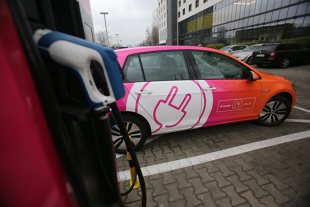 We already know that in the case of passively cooled batteries (Nissan Leaf, VW e-Golf, VW e-Up), extreme weather conditions, especially heat, have a negative impact on their durability. Long-term driving in registers with a low charge will also be harmful. And how does using fast chargers affect battery life? Specialists tested two identical Nissan Leaf models with a range of more than 80 km. One was charged only from the home network, the other from fast charges. The difference in the effective capacity of the batteries was 000% to the detriment of the unit charged with more power. As you can see, charging speed affects battery life, but not significantly.
We already know that in the case of passively cooled batteries (Nissan Leaf, VW e-Golf, VW e-Up), extreme weather conditions, especially heat, have a negative impact on their durability. Long-term driving in registers with a low charge will also be harmful. And how does using fast chargers affect battery life? Specialists tested two identical Nissan Leaf models with a range of more than 80 km. One was charged only from the home network, the other from fast charges. The difference in the effective capacity of the batteries was 000% to the detriment of the unit charged with more power. As you can see, charging speed affects battery life, but not significantly.
It is worth noting that used batteries do not need to be disposed of immediately, which is often cited as an argument in favor of the non-environmental nature of electric vehicles. Batteries worn out from a car's point of view often have factory efficiency less than 70%. They can be successfully used for many years, for example, to store electricity generated from renewable energy sources, etc. Thus, their full life cycle can be completed even in 20 years.
Battery life. How long can it take?
Finally, a few words about the guarantee that individual manufacturers give for the batteries of their electric vehicles. All companies guarantee 8 years of trouble-free operation. The conditions differ mainly in the course. Tesla gives you unlimited kilometers. The exception is the model "3", which, depending on the version, was given a limit of 160 or 000 km. Hyundai guarantees a stress-free mileage of 192 km, while Nissan, Renault and Volkswagen guarantee 000 km. BMW i Smart gives the smallest limits. Here we can count on 200 km of trouble-free driving.
Battery life. Summary
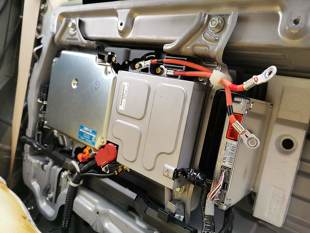 In summary, there are so many hybrid and electric vehicles in the world that we can confidently and fairly accurately determine the life of the batteries that power them from the data we collect. It turns out that the skeptics who assessed the durability of car batteries based on experience with batteries for smartphones and laptops were very wrong. The service life of the car's power units pleasantly surprised the manufacturers themselves, which meant that some of them could afford to extend the factory warranty on these elements.
In summary, there are so many hybrid and electric vehicles in the world that we can confidently and fairly accurately determine the life of the batteries that power them from the data we collect. It turns out that the skeptics who assessed the durability of car batteries based on experience with batteries for smartphones and laptops were very wrong. The service life of the car's power units pleasantly surprised the manufacturers themselves, which meant that some of them could afford to extend the factory warranty on these elements.
When buying used electric models, even those that are 8-10 years old, you can probably proceed from the fact that the operation of the batteries up to a mileage of 400 km should be trouble-free, which obviously depends on the conditions in which the car was operated. Therefore, before buying a car, we must go to a specialized workshop to check the battery. This service costs only PLN 000 (according to the JD Serwis price list) and will give us a general idea of the battery condition. It is noteworthy that the development of energy storage technologies continues to accelerate. Shortly before the premiere of Tesla's improved lithium-ion battery, the service life of which will exceed current regulations at least twice. Graphene batteries are already in the technological queue, which will provide further, step-by-step improvement in operating parameters. As you can see, the short battery life of electric vehicles is another automotive myth.
See also: What you need to know about the battery
